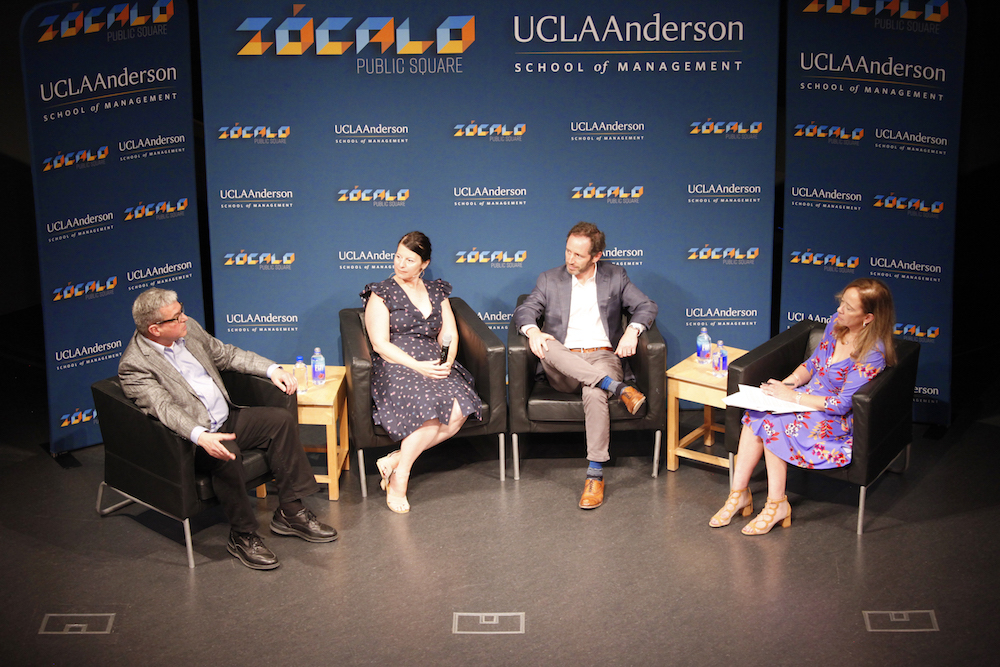The threat of modern propaganda
In a recent panel discussion, associate professor Jennifer Mercieca and other scholars discussed the effects of Americans receiving hundreds of propagandistic messages every day.

By Alix Poth ’18
Associate Professor of Communication Jennifer Mercieca will appear on C-SPAN July 3 and 4, as part of a panel discussion about modern propaganda hosted by UCLA Anderson School of Management and Zócalo Public Square.
In the discussion, three scholars shared thoughts on the effects of propaganda, or intentionally manipulative messages. Mercieca was joined on the panel by marketing scholar and psychologist Hal Hershfield and social psychologist Anthony Pratkanis. The discussion focused on the fact that Americans are exposed to hundreds of propagandistic messages each day, and asked whether those messages are good or bad for us.
Mercieca stated that Americans now communicate more as propagandists than as citizens, Zócalo reported. Our primary method of communicating is social media and those platforms are “designed to promote the most outrageous and emotive content,” she said.
“Americans now communicate more as propagandists than as citizens.”
When asked what can be done to become a “smart consumer of propaganda”, Mercieca said to be “super vigilant” when consuming and producing media content.
“That can be hard, since social media platforms are designed to prevent us from thinking critically,” Mercieca said. “It’s important to ask what the Roman statesman and philosopher Cicero asked, ‘Cui bono?,’ or ‘Who profits?, when consuming propaganda. You have to think about who might be attempting to manipulate you and for what reason.”
Mercieca believes that communicating as propagandists instead of as citizens is a sign that our public sphere is “broken,” which is a threat to democratic stability.
You can learn more from Mercieca about the threats of propaganda here or by taking her class, COMM 438: Propaganda, this fall.
